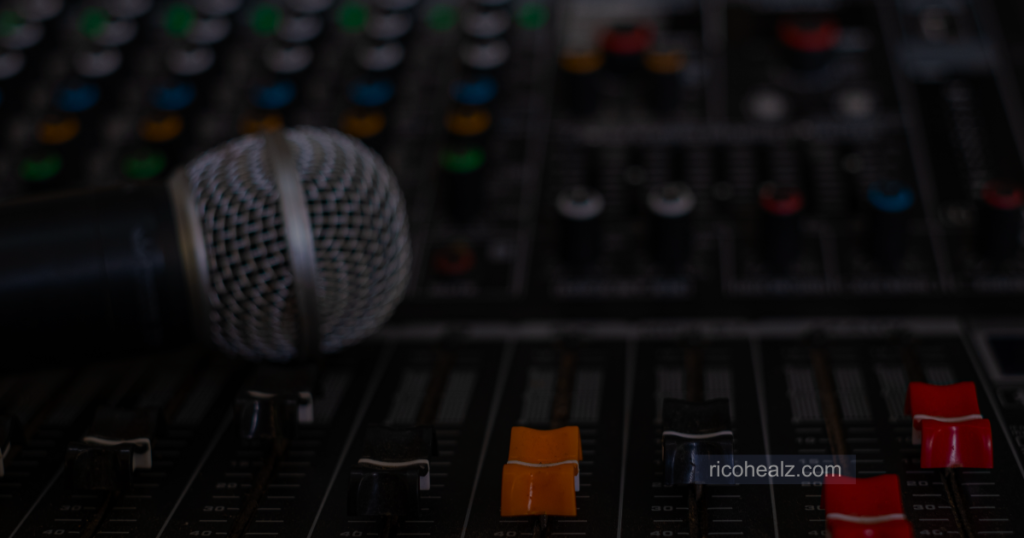Can Binaural Beats Cause Brain Damage? The Truth You Need to Know
Introduction:
Binaural beats have gained popularity in recent years as a tool for relaxation, meditation, and even pain relief. It involves listening to two different frequencies in each ear, which are said to create a third frequency that can affect brainwaves and induce a desired state of mind. However, with the rise in popularity, concerns have been raised about the potential negative effects of binaural beats on the brain.
One of the main concerns is whether binaural beats can cause damage to the brain. While there is limited research on the topic, some experts suggest that listening to binaural beats at high volumes or for extended periods of time may have adverse effects on the brain, such as tinnitus, seizures, or even changes in brain structure. Others argue that there is no evidence to support these claims and that binaural beats are safe when used properly.
In this article, we will explore the potential risks and benefits of binaural beats and whether they can cause damage to the brain. We will examine the existing research on the topic and provide insights from experts in the field. By the end of this article, you will have a better understanding of the potential risks and benefits of binaural beats and whether they are a safe and effective tool for improving your mental and emotional well-being.

What are Binaural Beats?
Binaural beats are an auditory illusion created by the brain when two tones of slightly different frequencies are played simultaneously. The difference between the two frequencies is called the “beat frequency,” which is perceived as a third tone. This phenomenon is thought to occur because the brain tries to reconcile the difference between the two frequencies.
Binaural beats are often used as a form of therapy to help with various conditions, such as anxiety and pain. Research has found that binaural beats can have a positive effect on stress, anxiety, and memory. However, there have been conflicting findings around its effects on concentration.
Binaural beats are typically listened to through headphones to ensure that each ear receives a different frequency. The beat frequency is usually in the range of 1-30 Hz, which corresponds to different brainwave frequencies. For example, a beat frequency of 10 Hz is associated with alpha brainwaves, which are linked to relaxation and creativity.
How do Binaural Beats Work?
Binaural beats work by playing two slightly different sound waves through each ear. These sound waves create a third tone, known as the binaural beat, in the brain. The frequency of the binaural beat corresponds to the difference in frequency between the two sound waves.
When the brain hears the binaural beat, it synchronizes with the frequency of the beat, leading to changes in brainwave activity. This phenomenon is known as the frequency-following response. Depending on the frequency of the binaural beat, different brainwave states can be induced.
For example, binaural beats in the alpha range (8-12 Hz) can induce a relaxed, meditative state, while binaural beats in the beta range (13-30 Hz) can increase alertness and focus. Binaural beats in the delta range (0.5-4 Hz) are associated with deep sleep and relaxation.
It’s important to note that while binaural beats can affect brainwave activity, there is no evidence to suggest that they can cause any damage to the brain. However, it’s always important to use caution when listening to binaural beats, especially if you have a history of seizures or other neurological conditions.

Are Binaural Beats Safe?
When it comes to binaural beats, the question of safety is a common one. While there are no clearly proven negative side effects of listening to binaural beats, it is important to keep a few things in mind.
Firstly, it is important to note that listening to any sound at or above 85 decibels for lengthy periods can lead to hearing loss. Therefore, it is recommended to keep control over the volume buttons while listening to binaural beats.
Secondly, it is important to consider individual circumstances. For example, people with epilepsy or those who suffer from seizures should avoid using binaural beats. Pregnant women, babies, and children should also avoid listening to binaural beats.
While binaural beats have been found to have positive effects for pain alleviation, anxiety reduction, and memory, there have been conflicting findings. Some experts suggest that binaural beats may be good for meditation and relaxation, but may not have any significant impact beyond that.
Overall, it is important to use caution when using binaural beats and to consider individual circumstances before incorporating them into a daily routine.
Can Binaural Beats Damage Your Brain?
Binaural beats have become increasingly popular in recent years as a tool for relaxation, meditation, and even cognitive enhancement. However, some people have expressed concerns about the potential negative effects of binaural beats on the brain. So, can binaural beats damage your brain?
According to a study published in the National Library of Medicine, binaural beats can affect the brain in various ways, such as changing the way the brain processes information, altering the state of mind, and inducing brainwave entrainment. However, the study did not find any evidence to suggest that binaural beats can cause brain damage.
Another study published in Healthline found that binaural beats do change the way the brain processes information, but it did not necessarily make it better. The study concluded that more research is needed to determine the long-term effects of binaural beats on the brain.
It is important to note that while binaural beats may not cause brain damage, they can still have negative effects on certain individuals. For example, those who are prone to seizures, such as epileptics, should avoid using binaural beats as they can trigger seizures. Additionally, some people may experience headaches or dizziness after listening to binaural beats for an extended period of time.
In summary, while there is no evidence to suggest that binaural beats can damage the brain, it is important to use them responsibly and be aware of any potential negative effects they may have on certain individuals.
What are the potential risks of using Binaural Beats?
Binaural beats have gained popularity as a tool for relaxation, meditation, and even improving cognitive function. However, there are some potential risks associated with using binaural beats that should be taken into consideration.
- Hearing loss: Listening to any sound at or above 85 decibels for lengthy periods can lead to hearing loss. It is important to keep control over the volume buttons when using binaural beats.
- Seizures: One of the biggest risks of binaural beats is seizures. If you’re epileptic or prone to seizures, using binaural beats is discouraged. The ‘frequency following techniques’ of the beats can trigger seizures, like the abnormal neurological impulses that cause epileptic seizures.
- Headaches: For some people, listening to binaural beats for extended periods of time can lead to headaches. This is similar to over-exposure to music, and can be avoided by taking breaks and not listening to binaural beats for too long.
It is important to note that these risks are not common and most people can use binaural beats without experiencing any negative side effects. However, it is always a good idea to be aware of the potential risks and use binaural beats responsibly.

Conclusion
While there is ongoing research on the effects of binaural beats, it is important to note that there is no conclusive evidence to suggest that they can cause damage to the brain. In fact, many studies have found positive effects of binaural beats on pain alleviation, anxiety reduction, and memory improvement.
However, it is important to use caution when listening to binaural beats, especially at high volumes, as it can lead to hearing loss. It is recommended to keep the volume at a safe level and to take breaks when listening for extended periods of time.
Additionally, it is important to note that the effects of binaural beats may vary from person to person, and some individuals may not experience any noticeable effects at all. Therefore, it is important to approach binaural beats with an open mind and to not rely solely on them for any medical or therapeutic purposes.
In conclusion, while binaural beats may have potential benefits, it is important to use them responsibly and to not rely on them as a cure-all solution for any medical or mental health issues.

